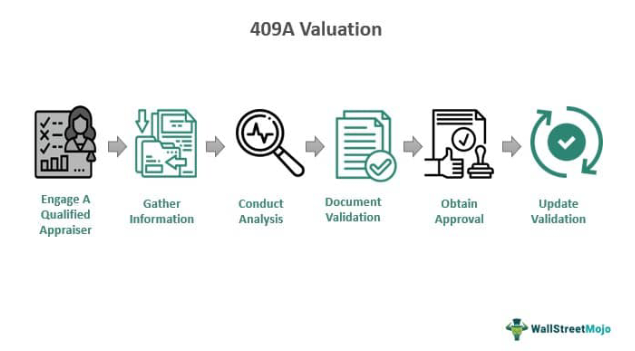In the Know: The Latest Trends in 409A Valuation Consulting
Navigating the Evolving Landscape of 409A Valuation
In the fast-paced world of finance, staying abreast of the latest trends is crucial. This guide explores the current trends in 409A valuation consulting, providing insights to help businesses make informed decisions in this dynamic landscape.
Embracing Technological Advancements
As technology continues to evolve, its impact on 409a valuation consultants is significant.
Automated Valuation Models (AVMs)
- Integration of AVMs
Consultants are increasingly integrating Automated Valuation Models into their processes. These tools enhance efficiency, reduce turnaround times, and ensure a more data-driven approach to valuations. - AI and Machine Learning
The use of AI and machine learning algorithms is becoming prevalent. These technologies help consultants analyze vast datasets, improving the accuracy of valuations and providing more nuanced insights.
Industry-Specific Expertise
The demand for consultants with industry-specific knowledge is on the rise.
Specialized Verticals
- Focus on Vertical Expertise
Clients seek consultants with specialized knowledge in their industry. Whether it’s healthcare, technology, or finance, industry-specific insight ensures a more tailored and accurate valuation process. - Cross-Industry Collaboration
Consultants are engaging in cross-industry collaboration. This approach brings diverse perspectives and strategies, enriching the valuation process with insights from different sectors.
Enhancing Regulatory Compliance
The regulatory landscape is ever-evolving, prompting a shift in how consultants approach compliance.
Continuous Compliance Monitoring
- Real-time Compliance Monitoring
Consultants are adopting real-time compliance monitoring tools. This ensures that businesses stay ahead of regulatory changes, reducing the risk of non-compliance and associated penalties. - Regulatory Training Programs
To enhance their expertise, consultants are participating in ongoing regulatory training programs. This commitment ensures they remain well-versed in the latest compliance requirements.
Strategic Decision Support
Beyond compliance, consultants are playing an increasingly strategic role in business decisions.
Data-Driven Strategic Insights
- Utilizing Data for Strategic Decisions
Consultants are leveraging the wealth of data gathered during valuations to provide strategic insights. This includes recommendations for optimizing employee stock options, fundraising strategies, and overall financial planning. - Advisory Services Expansion
The role of consultants is expanding beyond traditional valuation services to include broader advisory services. This shift positions them as valuable partners in shaping a company’s financial future.
Addressing Environmental, Social, and Governance (ESG) Factors
The focus on environmental, social, and governance factors is influencing valuation practices.
ESG Integration
- Incorporating ESG Criteria
Consultants are integrating ESG criteria into their valuation methodologies. This not only aligns with growing stakeholder expectations but also provides a more comprehensive view of a company’s value. - Stakeholder Collaboration
Collaboration with various stakeholders, including investors and regulatory bodies, is becoming more common. This ensures that ESG considerations are adequately addressed in the valuation process.
Future-Proofing Valuation Strategies
Anticipating future trends is essential for consultants aiming to provide valuable and forward-thinking services.
Scenario Analysis and Sensitivity Testing
- Scenario Planning
Consultants are increasingly employing scenario analysis and sensitivity testing. This helps businesses understand the potential impact of various scenarios on their valuations, enabling more informed decision-making. - Technological Integration for Future Readiness
Technological integration is not just about current tools; it’s about future readiness. Consultants are investing in technologies that position them to adapt to the evolving landscape of finance and valuation.
In Conclusion
Being “In the Know” about the latest trends in 409A valuation consulting is crucial for businesses seeking accurate, compliant, and strategic financial insights. As the landscape continues to evolve, aligning with consultants who embrace these trends ensures that your valuation process remains robust, forward-thinking, and tailored to the unique needs of your business.

